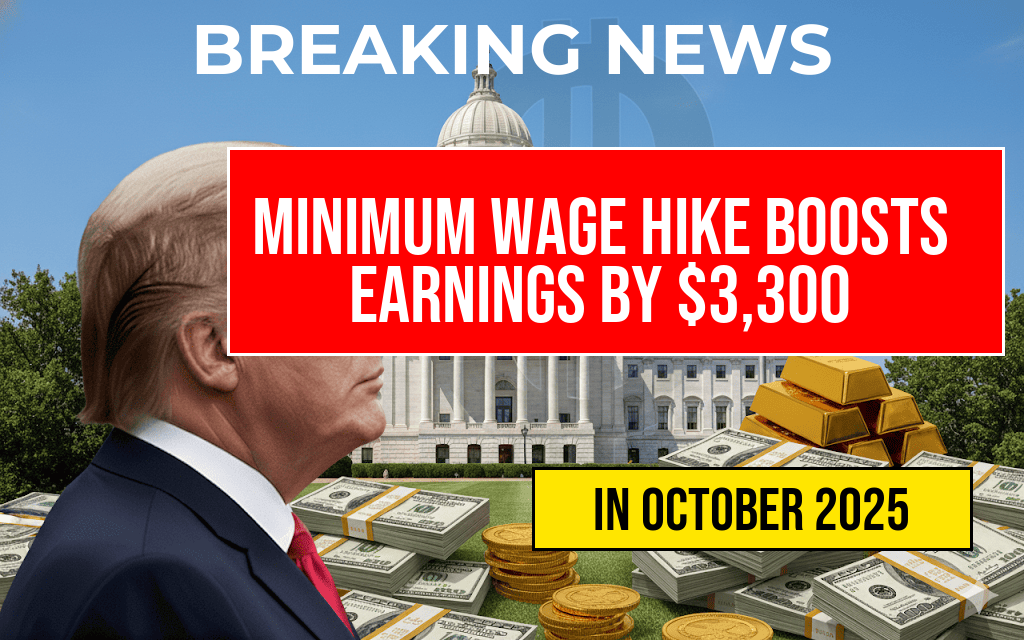A recent study has revealed that an increase in the federal minimum wage to $15 per hour is projected to significantly enhance the annual earnings of approximately 32 million American workers. The analysis indicates that this wage adjustment could boost earnings by an average of $3,300 per worker annually. Advocates for the wage hike argue that this change is essential for improving living standards and addressing income inequality, while critics express concerns about potential job losses and increased costs for businesses. As the debate continues, the implications of such a wage increase remain a focal point in discussions about economic policy and labor rights across the nation.
Understanding the Impact of the Wage Increase
The proposal to raise the federal minimum wage has faced varied responses from different sectors. Supporters claim that the increase is necessary for workers to keep pace with the rising cost of living, while detractors warn that it may lead to higher unemployment rates as businesses adjust to increased labor costs.
Key Findings from the Study
- Annual Earnings Boost: The study estimates that the wage increase will elevate the annual earnings of low-wage workers by $3,300 on average.
- Worker Demographics: Approximately 32 million workers, including many part-time employees, will benefit from this adjustment.
- Economic Stimulus: Increased earnings are expected to boost consumer spending, which could stimulate economic growth.
Who Will Be Affected?
The wage increase will predominantly impact low-income workers, including those in sectors such as retail, hospitality, and healthcare. A significant proportion of affected workers are women and people of color, who are disproportionately represented in low-wage jobs. The study highlights that:
| Demographic Group | Percentage of Affected Workers |
|---|---|
| Women | 56% |
| People of Color | 45% |
| Part-Time Workers | 26% |
Economic Implications
Proponents of the wage increase argue that a higher minimum wage will lead to greater economic stability for millions of families. By providing workers with more disposable income, the increased earnings could lead to higher spending in local economies, benefiting businesses and potentially leading to job creation. However, critics warn that these economic benefits could be offset by potential downsides.
Concerns and Critiques
Opponents of the minimum wage increase argue that raising wages could result in job losses, particularly in small businesses that may struggle to meet the new wage requirements. Some economists predict that businesses might respond by reducing hours, cutting jobs, or even increasing prices to compensate for the higher labor costs.
- Job Losses: Critics suggest that small businesses may not be able to sustain the increased costs.
- Price Inflation: Some fear that businesses could raise prices to cover labor expenses, potentially leading to inflation.
Legislative Context
The push for a $15 minimum wage has gained traction in recent years, with various states and localities already implementing higher wage standards. The proposed federal increase is part of a broader movement aimed at addressing economic disparities and improving the quality of life for low-wage workers. As policymakers consider this proposal, the outcomes of similar state-level initiatives may provide valuable insights.
For more information on the implications of a federal minimum wage increase, visit Forbes and Wikipedia.
Conclusion: A Crucial Debate Ahead
The discussion surrounding the potential federal minimum wage increase to $15 per hour is set to continue as stakeholders from various sectors weigh the benefits against the costs. As the nation grapples with economic recovery and social equity, the outcomes of this debate will likely shape the future of labor policy in the United States.
Frequently Asked Questions
What is the expected impact of the federal minimum wage increase to $15?
The federal minimum wage increase to $15 is expected to boost annual earnings by $3,300 for approximately 32 million workers, according to a recent study.
How many workers will benefit from the wage increase?
About 32 million workers are anticipated to benefit from the increase in the federal minimum wage to $15.
What is the current federal minimum wage?
The current federal minimum wage is $7.25 per hour, which has not changed since 2009, making the proposed increase to $15 a significant boost for low-income workers.
How will the wage increase affect low-income families?
The increase to $15 is projected to have a positive impact on low-income families by raising their earnings and improving their overall financial stability.
When is the federal minimum wage increase expected to take effect?
The timeline for the implementation of the federal minimum wage increase to $15 has not been officially announced, but discussions are ongoing regarding its potential rollout.

Leave a Reply